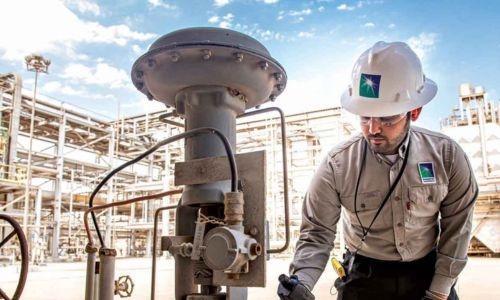Saudi Aramco halts plan to raise production capacity
Agencies | Saudi Arabia
The Daily Tribune – www.newsofbahrain.com
Saudi Arabia has ordered energy giant Aramco to maintain its oil production capacity at 12 million barrels per day, abandoning a planned increase, the firm said yesterday.
“Aramco announces that it has received a directive from the ministry of energy to maintain its maximum sustainable capacity (MSC) at 12 million barrels per day” instead of ramping it up to 13 million bpd, the firm said in a statement.
“The company will update its capital spending guidance when its full-year 2023 results are announced in March.” Saudi Arabia is the world’s largest crude exporter and Aramco is the jewel of the Gulf kingdom’s economy.
Aramco’s profits are expected to finance Crown Prince Mohammed bin Salman’s sweeping economic and social reform programme known as Vision 2030, which aims to lay the groundwork for an eventual post-oil future.
Riyadh announced the planned production capacity increase in October 2021, the same month it pledged to achieve net zero carbon emissions by 2060 –- drawing intense scepticism from environmental activists.
Aramco said it planned to achieve production capacity of 13 million bpd by 2027.
The decision to drop the target “suggests Riyadh is not very confident that the world will need so much additional capacity and that the investment required to get to and maintain 13 million bpd is better spent elsewhere,” said Jamie Ingram, senior editor at the Middle East Economic Survey.
He noted that earlier this month Aramco more than doubled its funding for its venture capital arm, Aramco Ventures, from $3 billion to $7 billion.
Justin Alexander, director of the consultancy Khalij Economics, described Tuesday’s news as “a major development” and “quite surprising”, citing Saudi Arabia’s existing reserves, adequate capital for investment and low development costs.
“Even if demand flatlines or begins to fall as a result of the energy transition, natural declines elsewhere could create scope for new capacity from low cost and low carbon intensity producers such as Aramco,” he said.
Related Posts

